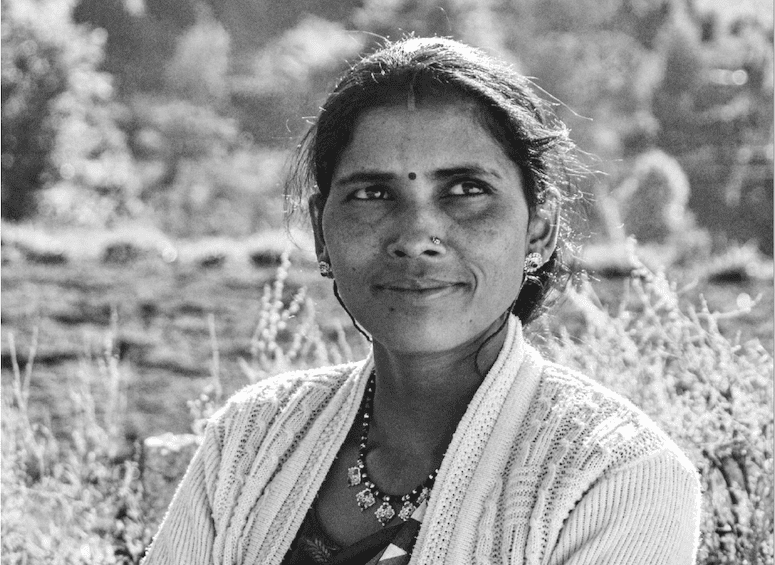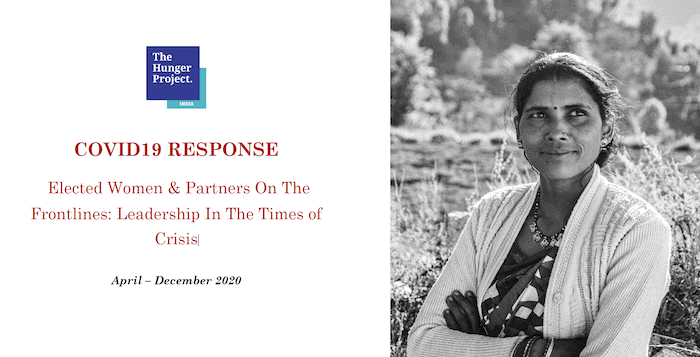A new report from THP-India explores the power of local leadership in a time of crisis.
The global COVID-19 pandemic has re-emphasized the need for community-level decision-making and access to accurate information during a public health crisis.
It’s abundantly clear that leadership and governance on a global and local scale are required to confront the spread of a deadly disease. In India, as the global community began to navigate the obstacles a pandemic, the biggest question that arose was: what is needed at the community level?
Within the first weeks of lockdown, we partnered with local Elected Women Representatives (EWRs) and gram panchayats (village councils) to activate a network of more than 8,000 woman leaders to address these new challenges. Communicating accurate information to dispel myths was essential to providing the tools for safety. So, local leaders used their platforms to raise awareness and an understanding of community members’ responsibilities to protect each other against COVID-19 and successful educational campaigns were launched throughout India.
What are EWRs?
In 1992, the 73rd Amendment to the Indian Constitution mandated that one-third of all seats in panchayats (village councils) be reserved for women, bringing more than one million women into elected office. Now, we partner with Elected Women Representatives (EWRs) to become effective and respected leaders in their communities.
EWRs also worked to ensure access to food rations under the government’s Public Distribution System (PDS) and other government related services that were still open. From Uttarakhand to Karnataka, sewing groups were formed to make face masks using material left over from stitching clothes. Elected women established task forces to monitor ration shops and ensure prepared meals were served and distributed to the most vulnerable families.
Nirmala, Sukhiya, Sita and Anita—members of the Sema Panchayat in Rajasthan—stepped into their leadership and began operating as fundraisers to guarantee access to government resources and funds distributed during COVID-19. They approached individuals and groups and mobilized fund drives to procure sanitizers, essential food items and masks. These local leaders are motivated by compassion and responsibility:
“Our main aim was to provide immediate relief in areas with extremely vulnerable communities where the government hasn’t reached yet. We have been able to support 20 families in distress so far.” (As of December 2020)
In Odisha, former elected women were key in undertaking efforts to ensure food security during the lockdown. THP-trained local leaders supervised local relief programs that included government support such as 1,000 rupees for dry rations and an extra 5kg of rations for 3 months. They were also involved with the delivery of lunches to school children and rationing for children and pregnant women.
EWRs are still at the frontline of our pandemic response in India. Their leadership and persistent advocacy was key to ensuring that governmental measures were accessible to all. Together, beyond only India, our global community continues to advocate for basic human needs like food, sanitation and accurate information while addressing long-term issues of gender-based violence, food insecurity and community-led development.
By the numbers.
Our awareness campaign focused on COVID-19 prevention, food security and helpline numbers for children and women. It had a total outreach of over 24,000 people through the Mobile Van Campaign and more than 36 million through the radio messages, covering 17 of the 38 districts in Bihar. Similarly, in Madhya Pradesh, we enabled better access to information, reaching 17,800 people via Mobile Van Campaigns and 38 million through radio listenership in all 52 districts.
Read more about our COVID-19 response around the world.



